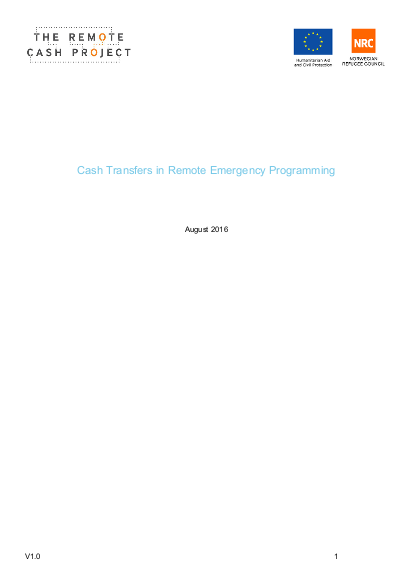
In emergencies with significant access challenges for humanitarian actors, the use of Cash Transfer Programming (CTP) has great potential to help provide life-saving support to the most vulnerable people. CTP may not require a heavy and consistent staff presence, is not subject to the same logistical barriers as in-kind assistance, and can often continue during peaks of disruption and displacement. However, as with in-kind programming, the risks linked to cash modalities are heightened when handled remotely.
These guidelines are an expression of existing CTP guidelines adapted to remote programming principles. They are intended to be used by humanitarian agencies to design effective projects using CTP in remote programming contexts where agencies’ ability to programme according to normal best practice are severely constrained.